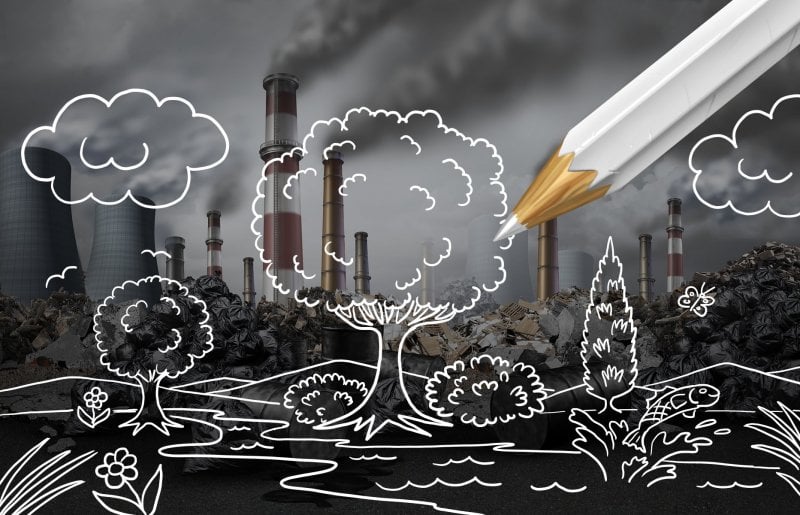
The Importance of Sustainability
The word sustainability is typically used to describe any method or process through which an ecological balance is maintained. Visitors to this blog will discover how it applies to technology, the workplace, transportation, agriculture, and businesses. Fascinating articles will delve deep into subjects that encompass what can be done to preserve natural resources. This includes changing consumer behavior and adopting the use of durable products, rather than becoming a throwaway society. With the threat of climate change, the biggest corporations on the planet will need to draw up responsible strategies to avoid damaging the environment and wildlife.
Types of Electric Cars
11 Jun 2021
With environmental conservation being a global agenda, all the countries in the world have the responsibility to pull in one direction, using electric cars becoming one of the strategies to curb environmental degradation. The common types of electric vehicles include plug-in hybrid, battery, and hybrid electric cars.
How to Live a More Sustainable Life
31 May 2021

A day can look like any other day. However, depending on your daily method of operation, the impact of your lifestyle habits can differ from person to person.
Many people are choosing to tread lightly upon the planet and live sustainably.
Sustainable, or “green”, living supports a priority of using Earth’s natural and reusable sources minimally for present and future generations. The main intention of sustainable living is to minimize resource by-products and avoid depleting valuable global elements.
You can make many lifestyle changes and adjustments to help protect planet Earth’s inhabitants, ecosystems, land, water sources, and animals.
Let’s do a check-in and see if there are simple habits that may or may not be contributing to sustainable living.
You may start your day with meditation, a workout, the news and coffee, or check your online sportsbook, then head to work.
However your day starts, there are many sustainable life choices you can celebrate when your day ends.
Inhabitants on Earth are using what would be available on 1.6 Earths.
The demand and use of resources by people, countries and governments are termed as the Ecological Footprint or Carbon Footprint.
The larger the footprint, the more depletion our planet endures. The practice of sustainability requires more than minimizing the one trillion plastic bags blanketing our world daily.
To Reduce Your Carbon Footprint
- Consider the basics for living sustainably.
- Check your food preferences, transportation methods and recycling habits.
- How much energy you utilize daily.
- Filter through your day and find additional ways to support sustainability.
Personal
- Showers use less water than baths.
- Try a bamboo toothbrush.
- Find many uses for one item.
- Donate what you don’t need.
- Invest in natural fibre clothing.
Dining Out, School Lunches
- Make single-use cutlery - multiple times use cutlery.
- Reusable straws.
- Bring your cups, dishes, utensils.
- Use lunch boxes and beeswax wrapping.
- Cloth bags, reusable non-plastic containers for bulk.
Home
- Minimize electrical use.
- Use paper bags to line trash receptacles.
- Use laundry soap nuts and dryer balls.
- Home textiles made from natural fibres: organic cotton, hemp, jute, wool, bamboo.
- Recycle, don’t Wishcycle. Check all the guidelines for what’s recycled in your area.
- Create litter-free holidays and special occasions with sustainability in mind.
Food is Huge
When it comes to sustainability, food is an unavoidable topic to review. Local farmers markets and home gardens will be tastier and fresher. It’s estimated that an average American meal prepared with non-locally farmed food has travelled up to 1500 miles to reach the dinner table.
Freshness cannot be guaranteed without fumigation dousing and lengthy refrigeration methods. Support your local produce and farmer’s market economy. If you have access to a backyard, try a compost bin for the inedible parts of food or vegetarian overs. Reduce your food trash output and think before you toss it out. Assure the welfare of plants, environments, workers and animals are respected. Check the food labels for its production location. Eat, drink, and be sustainable!
Types of Recycling
6 May 2021
Recycling is actually a way of making already used material usable again so that the latter does not cause harm to the environment. There are various types of recycling based on the material, and these include plastic, waste paper, metal, wood, glass, and textile recycling.
Why Tree Planting is Important
22 Mar 2021
With many people encroaching on forests, trees need to be replaced faster than they are cut. That's where the slogan, "cut one and plant two," comes in handy. Besides water conservation, trees also act as windbreaks, and they attract rainfall. Hence drought may be inevitable without trees.